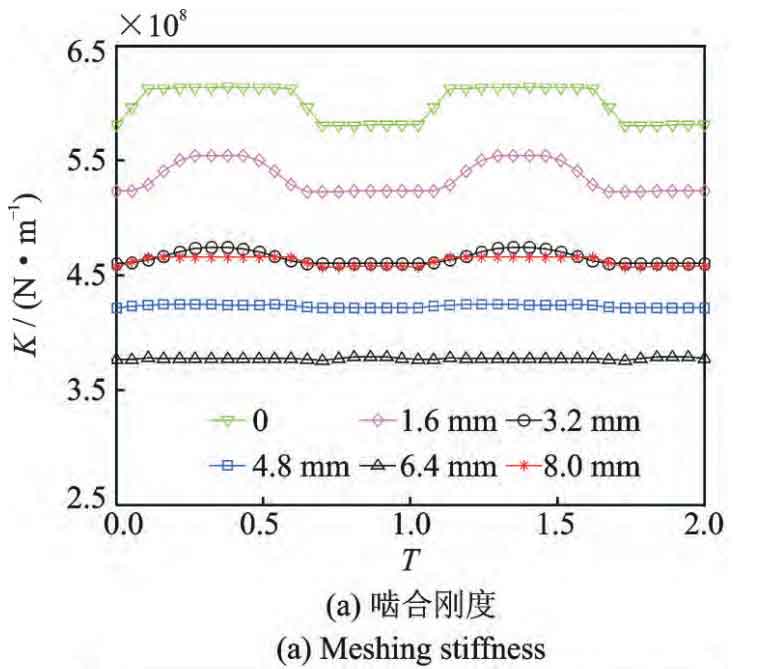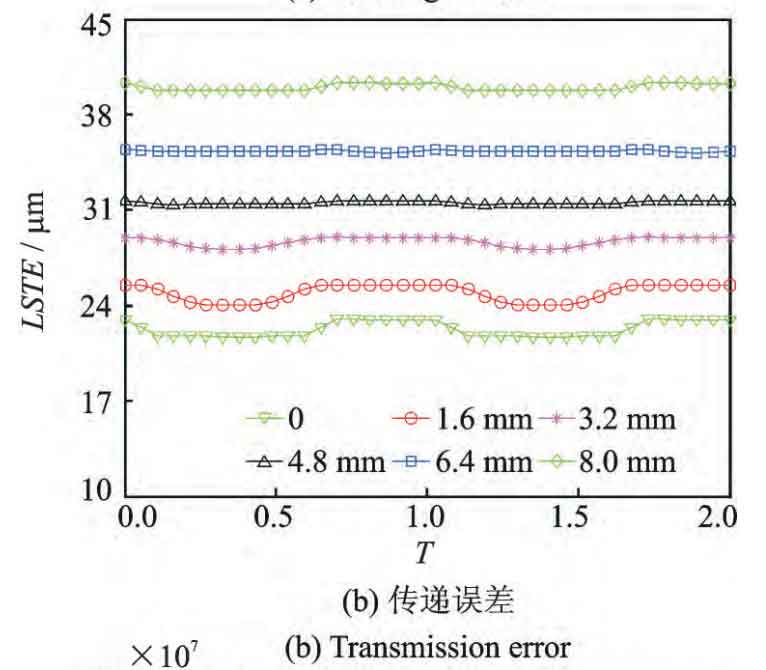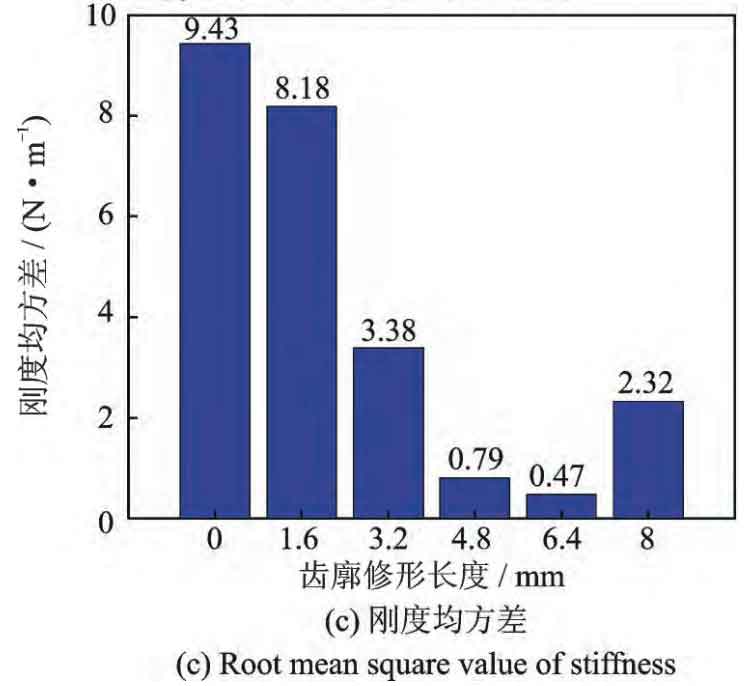In order to study the influence of different tooth profile modification amount and different modification length on the stiffness and transmission error of helical gear under the condition of tooth top modification. Taking the helical gear pair of a high-speed railway traction gearbox as the research object, the design parameters are shown in Table 1.
Figure 1 shows the tooth profile modification length La = 6.4mm, and the tooth profile modification amount CA is 0, 10, 20, 30, 40 and 50 respectively μ M, the comprehensive meshing stiffness, transmission error and stiffness mean square deviation of helical gear. Abscissa t is dimensionless time, and ordinate represents meshing stiffness, load transfer error and mean square deviation of meshing stiffness respectively. As can be seen from Fig. 1 (a) and (b), with the increase of modification amount, the meshing stiffness value of helical gear gradually decreases and the transmission error increases; In the area of alternating number of teeth, the fluctuation of meshing stiffness first decreases to the fixed value, and then increases with the increase of modification.
Figure 2 shows the tooth profile modification CA = 30 μ m. When the tooth profile modification length La is 0, 1.6, 3.2, 4.8, 6.4 and 8.0mm respectively, the comprehensive meshing stiffness, transmission error and stiffness mean square deviation of helical gear. As can be seen from Fig. 2 (a) and (b), with the increase of tooth profile modification length, the meshing stiffness of helical gear gradually decreases to the fixed value and then increases, and the transmission error first increases and then decreases; In the area of alternating number of teeth, the meshing stiffness curve gradually flattens to a straight line, and then the slope of the stiffness curve gradually increases with the increase of the modification length of the tooth profile. According to Fig. 1 (c) and (c), the tooth profile modification amount is 30 μ m. When the modification length is 6.4mm, the meshing stiffness mean square deviation is the smallest, that is, the meshing stiffness fluctuation is the smallest. Compared with the unmodified length, the stiffness mean square deviation decreases by 95.02%.







